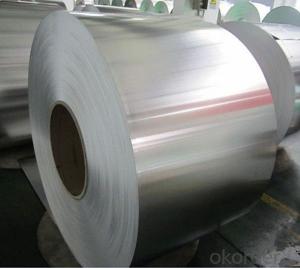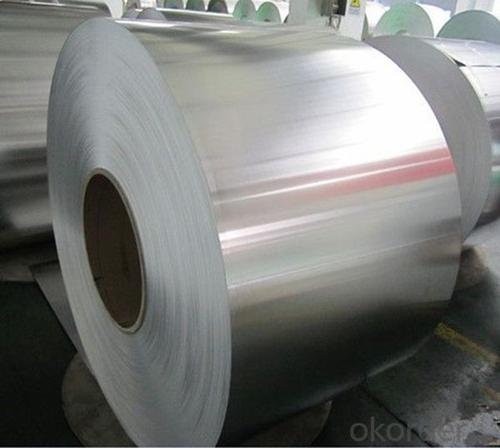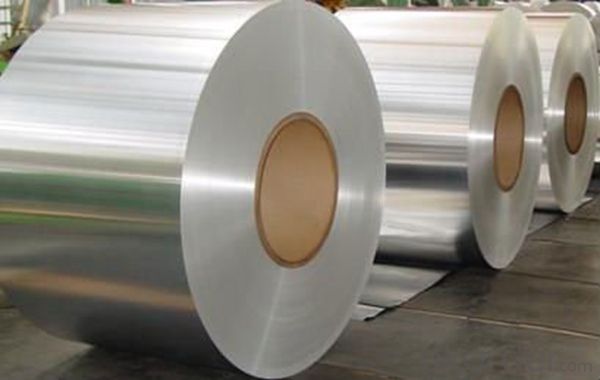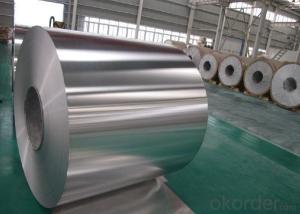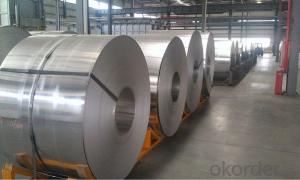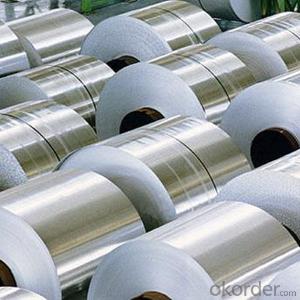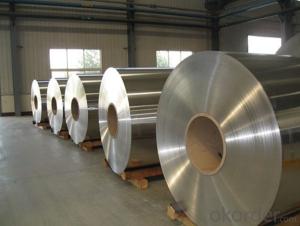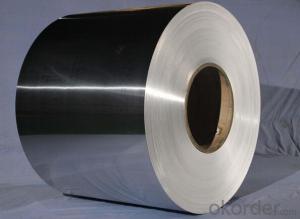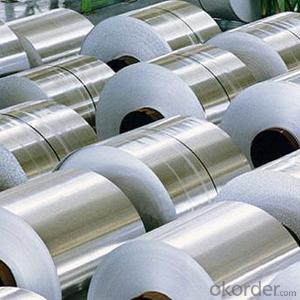AA3003 H12 Direct Rolled Aluminum Coil China Factory Direct Selling - Aluminum Coil Canada
- Loading Port:
- Shanghai
- Payment Terms:
- TT OR LC
- Min Order Qty:
- 5 m.t.
- Supply Capability:
- 10000 m.t./month
OKorder Service Pledge
OKorder Financial Service
You Might Also Like
Specification
1. Specification of AA3003 H12 Direct Rolled Aluminum Coil China Factory Direct Selling
Material | Alloy Aluminum 6063,6061,6005 or customer nominated |
Temper | T3, T4, T5, T6 |
Surface | Anodize, electrophoresis, powder coating, PVDF coating, wood grain painting, matted, etc. |
Colour | Any colour based on Standard Germany RAL Mark |
Length | Coating 6.5 meters, Anodizing 6.5 meters, Mill finish 5 meters |
Press Machine | 500-4000 tons all together 64 press lines. |
Fabrication | 1. Windows and doors; 2. Drilling; 3. Bending; 4. Cutting; 5. etc. |
Certificate | ISO 9001 |
Moulding | 1. Using our moulds, no fee; |
2. Using customer drawing, opening mould, usually about 10~50 tons then the moulding can be refunded. | |
3. Mould cost is negotiable base on the order quantity | |
Capability | Annual output 100,000 tons |
2. Application of AA3003 H12 Direct Rolled Aluminum Coil China Factory Direct Selling
(1).Interior: wall cladding, ceilings, bathrooms, kitchens and balconies, shutters, doors...
(2).Exterior: wall cladding, facades, roofing, canopies, tunnels,column covers , renovations...
(3).Advertisement: display platforms, signboards, fascia, shop fronts...
3. Feature of AA3003 H12 Direct Rolled Aluminum Coil China Factory Direct Selling
*Such coil is specially designed to replace aluminum ingot, due to the high export tax of aluminum ingot, the coil has better price than ingot.
*This type of coil can fit customer's remelting furnace just like ingot, no need to make any change to the production line that was previously used for ingot. The standard coil size and weight is very suitable for the feed gate of furnace.
*This type of coil causes less material wastage than ingot when remelted.
*Our coil is made directly from ore, no need to go though the ingot making process, quality is much better than other suppliers who use ingot scrap to make coil.
Be free from Oil Stain, Dent, Inclusion, Scratches, Stain, Oxide Dicoloration, Breaks, Corrosion, Roll Marks, Dirt Streaks and other defect which will interfere with use
4. Certificate:
SGS and ROHS(if client request, paid by client), MTC(plant provided), Certificate of Origin(FORM A, FORM E, CO), Bureau Veritas and SGS (if client request, paid by client), CIQS certificate
5. Image of AA3003 H12 Direct Rolled Aluminum Coil China Factory Direct Selling
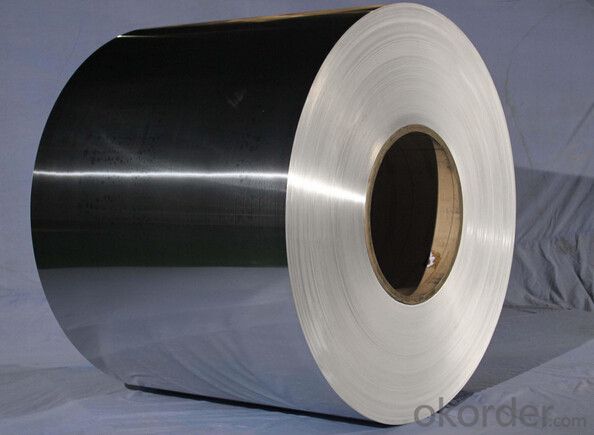
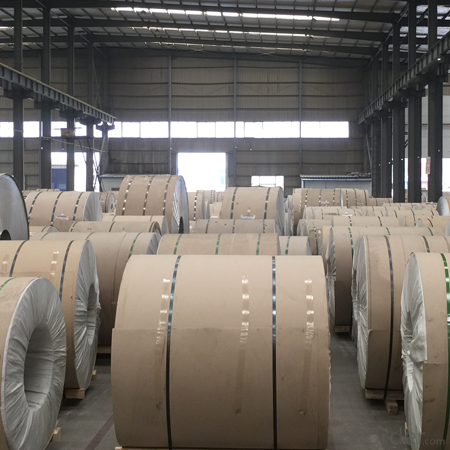
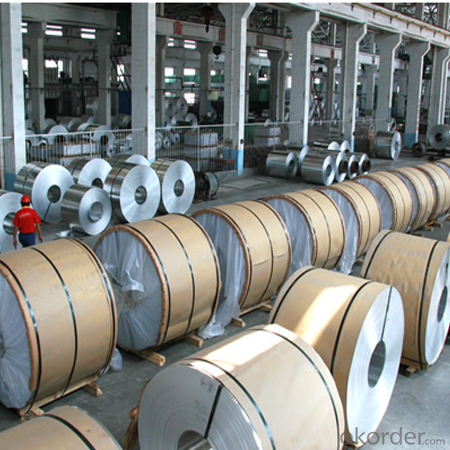
6. Package and shipping of AA3003 H12 Direct Rolled Aluminum Coil China Factory Direct Selling
eye to wall
eye to the wall
with wood pallet (wooded case also available)
7. FAQ
1) What is the delivery time?
Dpends on actual order, around 20 to 35 days
2)What is the QC system:
We have QC staff of 20 persons and advanced equipment, each production is with MTC traced from Aluminum ingot lot.
3) What market do you mainly sell to?
Australia, America, Asia, Middle East, Western Europe, Africa etc
- Q: Can aluminum coils be used for sound insulation purposes?
- Yes, aluminum coils can be used for sound insulation purposes. Aluminum has excellent sound-dampening properties due to its density and ability to absorb and attenuate sound waves. Aluminum coils can be used in various applications such as in HVAC systems, automotive industry, and construction to reduce noise transmission. The coils can be installed in walls, ceilings, or ductwork to create a barrier that blocks or absorbs sound vibrations, thus improving sound insulation and reducing noise levels. Additionally, aluminum coils are lightweight, durable, and resistant to corrosion, making them a reliable choice for sound insulation solutions.
- Q: Can aluminum coils be used in the manufacturing of lighting fixtures?
- Yes, aluminum coils can be used in the manufacturing of lighting fixtures. Aluminum is a lightweight and durable material that is commonly used in various industries, including the lighting industry. It offers excellent heat dissipation properties, making it suitable for fixtures that generate heat, such as LED lights. Additionally, aluminum coils can be easily shaped and molded into different designs, making them a versatile choice for lighting fixture production.
- Q: Can aluminum coils be used for marine applications?
- Yes, aluminum coils can be used for marine applications. Aluminum is a popular material choice for marine applications due to its excellent corrosion resistance in saltwater environments. It has a natural oxide layer that forms on its surface, providing protection against corrosion. Aluminum coils are commonly used for marine applications such as boat hulls, decks, and structures. Additionally, aluminum is lightweight, which contributes to fuel efficiency and improved performance in marine vessels. Its high strength-to-weight ratio makes it an ideal choice for constructing boats and other marine equipment. However, it is important to select the appropriate grade of aluminum alloy that is specifically designed for marine applications to ensure optimal performance and longevity.
- Q: Can aluminum coils be used in aerospace heat exchangers?
- Aerospace heat exchangers can indeed utilize aluminum coils. In the aerospace industry, aluminum is widely employed due to its lightweight nature and exceptional thermal conductivity. Heat exchangers play a critical role in aerospace systems by transferring heat between different mediums. Aluminum coils effectively conduct heat, making them suitable for aerospace heat exchangers. Moreover, aluminum's resistance to corrosion is essential in the challenging environments encountered in aerospace applications. Additionally, its low density contributes to fuel efficiency by reducing the overall weight of aircraft. Hence, aerospace heat exchangers prefer aluminum coils owing to their outstanding thermal conductivity, lightweight properties, and corrosion resistance.
- Q: Is it possible to utilize aluminum coils in the automotive industry?
- <p>Yes, aluminum coils are widely used in the automotive industry. They are employed in various applications such as engine parts, heat exchangers, and body panels due to their lightweight, corrosion resistance, and high strength-to-weight ratio. Aluminum's recyclability and energy efficiency in production also contribute to its popularity in vehicle manufacturing.</p>
- Q: I would like to know because I'm getting a sword with an aluminum sheathe.
- No, it is a very soft metal. However for a sheath it will likely be fine, unless you intend on practicing using the sheath for blocking as some Samurai used it for.
- Q: Are aluminum coils suitable for food processing and packaging?
- Yes, aluminum coils are suitable for food processing and packaging. Aluminum is a versatile metal that offers numerous benefits for the food industry. Firstly, aluminum has excellent thermal conductivity, which allows for efficient heat transfer during food processing and cooking. This property ensures that food is evenly cooked and prevents hot spots or uneven heating. Additionally, aluminum is a highly corrosion-resistant material, which is crucial for food packaging. It helps to protect the food from external factors such as moisture, oxygen, and light, which can degrade the quality and freshness of the product. Aluminum coils can be easily formed into various shapes and sizes, making them ideal for packaging different food products, including cans, pouches, trays, and lids. Furthermore, aluminum is a lightweight material, which makes it convenient for transportation and reduces energy consumption during distribution. It is also recyclable, meaning that it can be reused, reducing the environmental impact of food packaging. Overall, aluminum coils are well-suited for food processing and packaging due to their excellent thermal conductivity, corrosion resistance, versatility, lightweight nature, and recyclability.
- Q: Are aluminum coils suitable for automotive applications?
- Automotive applications can benefit from the suitability of aluminum coils. This lightweight material offers numerous advantages for automotive use. It possesses excellent thermal conductivity, enabling effective heat transfer and cooling in vehicles. Additionally, aluminum is corrosion-resistant, making it an ideal choice for automotive applications exposed to moisture and diverse weather conditions. Furthermore, aluminum coils possess a high strength-to-weight ratio, ensuring durability while maintaining a low vehicle weight. This aspect is particularly advantageous in enhancing fuel efficiency and reducing emissions. Moreover, aluminum coils can be easily molded and shaped into various automotive components, including heat exchangers, radiators, condensers, and evaporators. Their versatility and adaptability make them well-suited for a wide range of automotive applications.
- Q: Aluminum roll 220 kg.0.3 thickness, 500 width, roll diameter is how much?
- You can use the outside diameter, the inner diameter and the width to get the volume. You know the density and volume, and then you can find the weight naturally
- Q: What are the different coil winding options available for aluminum coils?
- Some of the different coil winding options available for aluminum coils include: 1. Layer winding: This involves winding the aluminum coil in a single layer, where each turn is adjacent to the previous one. This method ensures uniform distribution of the winding and is commonly used for small to medium-sized coils. 2. Pancake winding: In pancake winding, the aluminum coil is wound in a flat, spiral shape. This method is often used for large coils as it allows for efficient use of space and easy handling during transportation. 3. Concentric winding: Concentric winding involves winding the aluminum coil in multiple layers, with each layer placed concentrically around the previous one. This method is suitable for coils that require higher power and voltage ratings. 4. Random winding: Random winding refers to a method where the aluminum coil is wound in a non-uniform or irregular pattern. This technique is typically used for special applications or when the coil needs to fit into a specific space or shape. Overall, the choice of coil winding option depends on factors such as coil size, power requirements, space limitations, and specific application needs.
Send your message to us
AA3003 H12 Direct Rolled Aluminum Coil China Factory Direct Selling - Aluminum Coil Canada
- Loading Port:
- Shanghai
- Payment Terms:
- TT OR LC
- Min Order Qty:
- 5 m.t.
- Supply Capability:
- 10000 m.t./month
OKorder Service Pledge
OKorder Financial Service
Similar products
Hot products
Hot Searches
Related keywords
